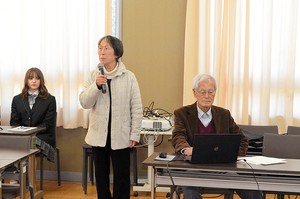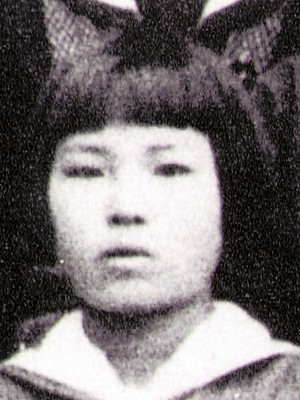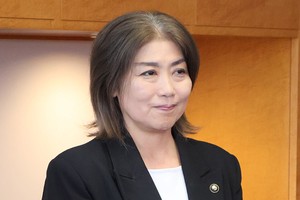REUTERS
December 21, 2021 at 17:55 JST
 Storage tanks containing processed radioactive water at Tokyo Electric Power Co.’s Fukushima No. 1 nuclear power plant in April (Asahi Shimbun file photo)
Storage tanks containing processed radioactive water at Tokyo Electric Power Co.’s Fukushima No. 1 nuclear power plant in April (Asahi Shimbun file photo)
The operator of Japan’s crippled Fukushima nuclear power plant intends to build an underwater tunnel to release water from the plant into the sea, it said on Tuesday, as part of a project to treat and dispose of contaminated water.
A decade after a massive earthquake and tsunami ravaged the northeastern coast, disabling the plant and causing the world’s worst nuclear disaster since Chernobyl, nearly 1.3 million tons of contaminated water has accumulated at the site.
The water, enough to fill about 500 Olympic-sized swimming pools, is stored in huge tanks at an annual cost of about 100 billion yen ($880 million), and space is running out.
This year, Tokyo Electric Power (Tepco) outlined plans to discharge more than 1 million tons of the water, after treatment and dilution, from a point about 1 kilometer offshore from the power station.
Tepco submitted detailed plans on Tuesday to the nuclear regulation authority for approval, Junichi Matsumoto, a company official, told reporters.
Pumps would move the treated water from the tanks to the seashore and through a seabed tunnel to release it at a depth of 12 meters and about 1 km out at sea, the firm said.
Although international authorities support the water discharge effort, it has provoked concern from neighbors China and South Korea and worried local farmers and fisherfolk.
Matsumoto said the company would continue to discuss the issue with residents and others before construction, set to start in the middle of next year.
The water is to be processed to remove radioactive contamination, except for tritium, which cannot be removed.
Water with the radioactive isotope diluted to one-seventh of the figure set by the World Health Organization’s guidelines for drinking water is to be released into the Pacific from the plant around spring 2023, under a government plan.
Nuclear plants worldwide routinely release water containing tritium, considered the least-toxic byproduct of atomic power.




















A peek through the music industry’s curtain at the producers who harnessed social media to help their idols go global.
A series based on diplomatic documents declassified by Japan’s Foreign Ministry
Here is a collection of first-hand accounts by “hibakusha” atomic bomb survivors.
Cooking experts, chefs and others involved in the field of food introduce their special recipes intertwined with their paths in life.
A series about Japanese-Americans and their memories of World War II